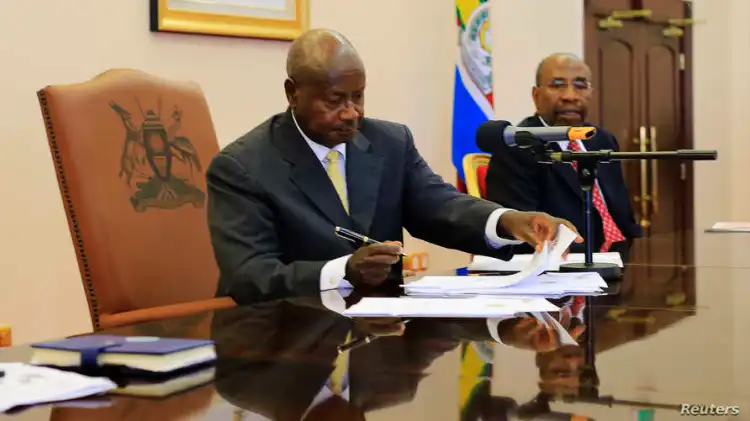
What you need to know:
- Addressing traders at Kololo ceremonial grounds in Kampala, President Museveni expressed his dismay at the pressure imposed by the importation of goods from countries that do not reciprocate by accepting Ugandan products in their markets.
- Last month’s trader strike prompted President Museveni to engage with the grievances raised, resulting in a temporary halt to penalties for EFRIS non-compliance as consultations with relevant ministries ensued.
President Museveni admonished traders on Tuesday, cautioning them against the influx of imported finished goods into the country, citing its detrimental impact on economic progress and national development.
Addressing traders at Kololo ceremonial grounds in Kampala, President Museveni expressed his dismay at the pressure imposed by the importation of goods from countries that do not reciprocate by accepting Ugandan products in their markets. He emphasized the importance of supporting local industries, highlighting the challenges faced in exporting products like milk, sugar, and beef to foreign markets.
Furthermore, he defended the full implementation of the Uganda Revenue Authority’s Electronic Fiscal Receipting and Invoicing Solution (EFRIS), dismissing traders’ appeals for its suspension. President Museveni stressed that VAT, enforced through EFRIS, ultimately falls on consumers and is necessary for funding national operations.
Asserting Uganda’s capacity for self-sufficiency in various sectors such as dairy, construction materials, and manufacturing, President Museveni urged compliance with taxation policies designed to bolster the local economy. He clarified that Uganda’s tax regime prioritizes exemptions for exports and machinery imports to stimulate domestic production.
Regarding EFRIS implementation, President Museveni suggested alternatives such as smartphone-based solutions for traders unable to afford the designated machines, directing URA not to penalize those opting for such alternatives.
Acknowledging traders’ concerns about EFRIS complexity and educational requirements, President Museveni promised flexibility in tax payment methods, subject to further discussions with URA officials.
Dismissing allegations of favoritism toward foreign investors, President Museveni cited statistics demonstrating substantial local participation in industrial ventures, particularly in Namanve.
Last month’s trader strike prompted President Museveni to engage with the grievances raised, resulting in a temporary halt to penalties for EFRIS non-compliance as consultations with relevant ministries ensued. However, the law maintains strict penalties for tax evasion through EFRIS manipulation.

Do you have a story or an opinion to share? Email us on: info@falconposts.com Or follow the Falconposts on X Platform or WhatsApp for the latest updates.





